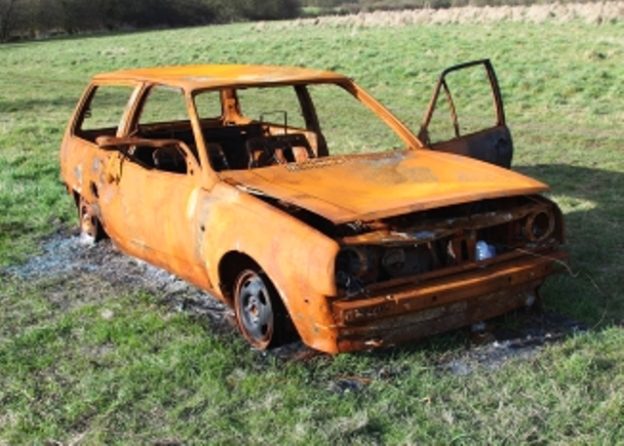The Economic and Ecological Advantages of Reusing Junk Autos
Reusing scrap autos offers many financial and environmental benefits that extend well past waste decrease. These advantages highlight the multifaceted value of recycling junk cars and trucks, yet there are even more elements to think about when reviewing its full influence.
Lowering Land Fill Waste
Lowering land fill waste through the recycling of scrap cars plays a pivotal role in ecological preservation. When cars get to the end of their life cycle, reliable reusing processes can significantly decrease the volume of waste that winds up in land fills. Junk cars and trucks, otherwise correctly reused, contribute to the expanding issue of landfill overcapacity, exacerbating ecological deterioration and potentially polluting dirt and groundwater with hazardous compounds such as oil, gas, and hefty metals.

Furthermore, the recycling process alleviates the negative results of auto waste on biodiversity. Land fills are notorious for disrupting local environments, and minimizing the increase of scrap autos aids maintain all-natural environments. Eventually, reusing junk automobiles is a calculated technique that promotes sustainable waste administration, aligning with broader environmental objectives.
Conserving Natural Resources
In addition to mitigating land fill overcapacity, recycling scrap cars and trucks plays a considerable role in preserving natural sources. By recycling junk cars, we substantially decrease the need for raw materials, consequently curbing the environmental destruction connected with mining activities.
Furthermore, the process of reusing cars and truck components such as light weight aluminum, lead, and copper is much much less energy-intensive than producing these materials from virgin resources. This energy cost savings converts straight into minimized nonrenewable fuel source consumption and lower carbon impacts (sell my junk car today). Additionally, by recovering and repurposing products, we expand the lifecycle of non-renewable sources, ensuring they remain offered for future usage
In addition, reusing automotive fluids like oil, antifreeze, and transmission fluid avoids harmful materials from infecting soil and water sources. With organized reusing initiatives, these liquids can be purified and recycled, advertising a circular economic climate and further reducing the strain on natural deposits. Hence, recycling scrap cars uses a complex strategy to conserving our planet's indispensable natural possessions.
Producing Task Opportunities
The recycling of scrap cars not just benefits the environment yet likewise stimulates financial growth by creating work chances. This growing sector uses a wide selection of employment prospects, varying from the preliminary collection and transport of old automobiles to the elaborate procedures of taking apart, sorting, and repurposing the different parts.

The proliferation of recycling plants further intensifies the work market, demanding functions such as engineers, machine drivers, and quality assurance experts to make sure and handle the sophisticated equipment conformity with environmental regulations. Also administrative more positions, such as sales, advertising and marketing, and customer support, see a rise as the market expands.
Lowering Production Costs
By integrating recycled products from junk autos, producers can dramatically lower production expenses. The power called for to process recycled materials is substantially much less than that needed to produce new products from scrape.
Moreover, the recycling process assists simplify the supply chain by providing a stable influx of products that are easily offered and often less costly than newly extracted resources. These expense performances are specifically critical in a very affordable market like auto manufacturing, where margins can be razor-thin. In addition, the recycling of scrap cars and trucks aids minimize the unstable rates of raw products, making it possible for suppliers to far better projection and regulate their manufacturing spending plans.
Giving Economical Automobile Parts
When junk vehicles are recycled, the availability of inexpensive car parts significantly raises, profiting both consumers and service center. Recycled auto components are commonly offered at a fraction of the cost of brand-new components, offering an economical option for car proprietors and mechanics. This price can be vital for individuals that might not have the financial methods to buy brand-new parts, allowing them to maintain their lorries in functional and risk-free condition.
Repair stores additionally acquire from this increased schedule of budget-friendly parts. By sourcing recycled parts, these services can decrease their functional expenses, which can be passed on to clients through reduced service fee. This, consequently, can bring about higher customer satisfaction and commitment, as clients value the expense financial savings without jeopardizing on quality.
In addition, the high quality of recycled components has see this boosted substantially throughout the years, many thanks to developments in reusing processes and high quality control actions. Lots of recycled components undergo extensive screening to guarantee they meet market criteria, providing dependability equivalent to new parts - sell car to junkyard. By providing a premium and financially sensible alternative, the recycling of junk cars and trucks plays a crucial role in supporting both the automobile repair service market and the wider consumer market
Conclusion
Reusing scrap vehicles presents considerable economic and environmental advantages by considerably minimizing land fill waste and preserving natural deposits. This technique reduces making expenses by recovering as much as 90% of automobile elements, therefore decreasing energy consumption and greenhouse gas emissions. In addition, it creates work possibilities throughout different industries and supplies affordable auto components, bolstering the auto fixing sector. Generally, the recycling of junk vehicles supports both financial development and sustainability goals.
Reusing junk automobiles offers various financial and environmental advantages that extend well past waste decrease. Scrap cars, if not correctly reused, add to the expanding problem of garbage dump overcapacity, worsening ecological deterioration and possibly infecting dirt and groundwater with hazardous substances such as oil, gas, and heavy steels.
By reusing scrap cars, we significantly reduce the demand for raw materials, thereby suppressing the ecological destruction connected with mining activities.When junk vehicles are recycled, the availability of inexpensive auto components substantially boosts, benefiting both consumers and fixing stores.Recycling scrap autos provides considerable financial and ecological benefits by significantly lowering garbage dump waste and conserving all-natural sources.